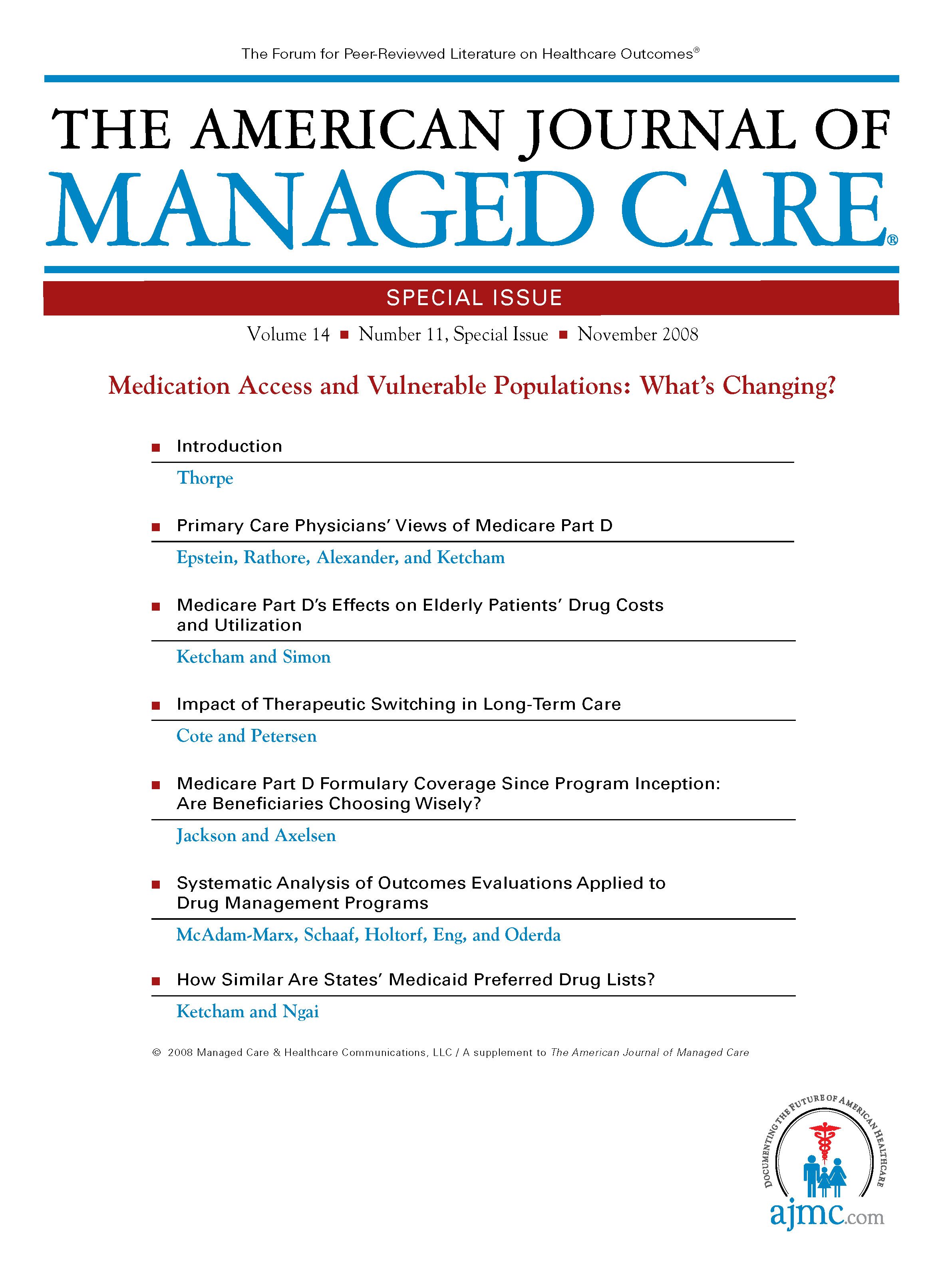- Center on Health Equity & Access
- Clinical
- Health Care Cost
- Health Care Delivery
- Insurance
- Policy
- Technology
- Value-Based Care
Restricting Access to Medicaid Populations
Dear Reader,
The American Journal of Managed Care
In 2004, published more theme and special issues than ever before. That trend will likely continue in 2005, and you're holding the first evidence of this development.
The formulation and adoption of preferred drug lists (PDLs) by state and federal agencies is a fairly recent development. These PDLs have arisen both as a means to control costs and as response to changes in the Medicare drug law. Given the continuing evolution of these programs, and the further changes to the Medicare drug program set to take effect in 2006, it is important to examine these programs and their consequences in detail. That task is made difficult, however, due to the paucity of research available in this area. This collection of papers may begin to remedy that problem.
These 5 papers and the introduction to them should help sketch the landscape of drug access restrictions at the beginning of 2005, and will also hopefully lay out the areas where additional research is needed. As ever, we welcome your feedback on this special issue, and look forward to publishing additional theme and special issues as the year continues.
The Editors
Funding for this Special Issue was provided by Pfizer Inc, New York, NY.

Building Trust: Public Priorities for Health Care AI Labeling
January 27th 2026A Michigan-based deliberative study found strong public support for patient-informed artificial intelligence (AI) labeling in health care, emphasizing transparency, privacy, equity, and safety to build trust.
Read More
Ambient AI Tool Adoption in US Hospitals and Associated Factors
January 27th 2026Nearly two-thirds of hospitals using Epic have adopted ambient artificial intelligence (AI), with higher uptake among larger, not-for-profit hospitals and those with higher workload and stronger financial performance.
Read More
Motivating and Enabling Factors Supporting Targeted Improvements to Hospital-SNF Transitions
January 26th 2026Skilled nursing facilities (SNFs) with a high volume of referred patients with Alzheimer disease and related dementias may work harder to manage care transitions with less availability of resources that enable high-quality handoffs.
Read More
Specialty and Operator Status Influence Electronic Health Record Use Variation
January 22nd 2026Operators demonstrated specialty-specific differences in electronic health record efficiency, timeliness, and after-hours use, highlighting how workflow and training shape documentation behaviors across medical disciplines.
Read More

